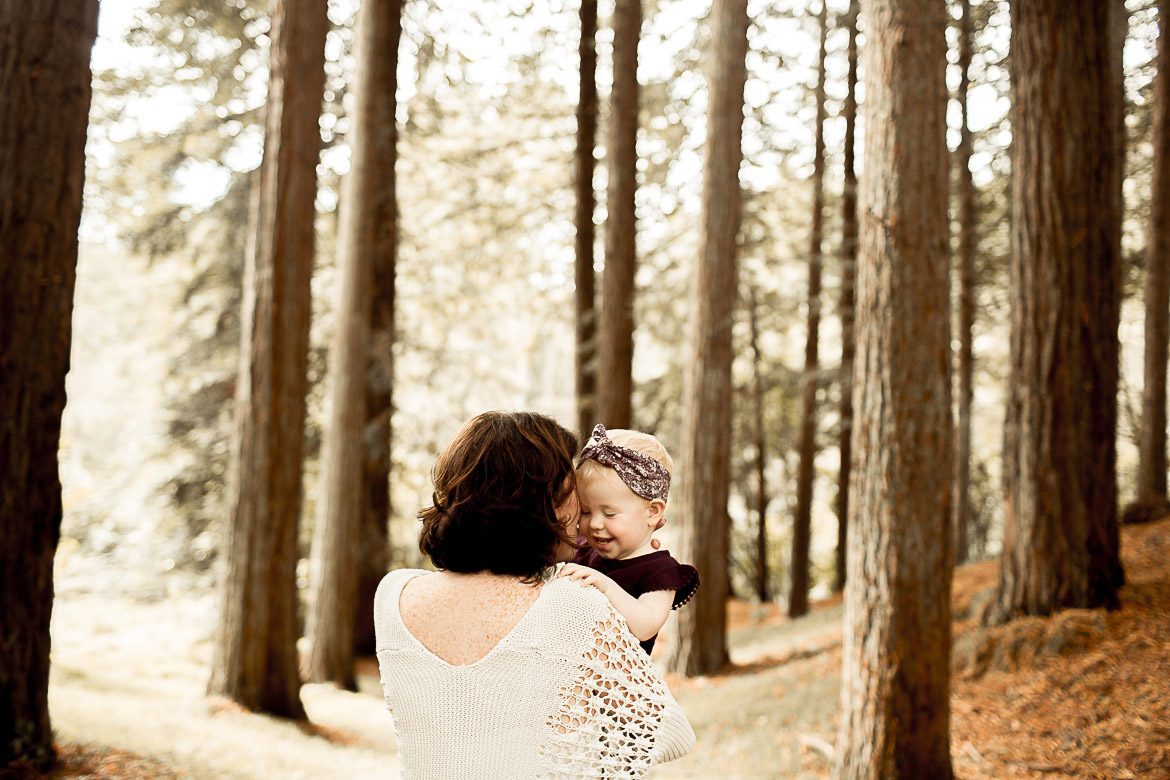By Katerina Manoff
How often have you heard this advice?
Slow down.
Quit all of those extracurricular activities.
Just relax and enjoy the little things!
If you’re a parent steeped in busyness (and aren’t we all?), such prescriptions for happiness probably pop up so often they’re beginning to sound cliché. But, though everyone seems to applaud the benefits of purging toys, quitting soccer class, and embracing unstructured play, very few of us are actually following through to stop and smell the roses.
But what if you don’t know how to smell the roses?
Most “slow down and smell the roses” experts seem to assume that living simply – once the actual work of simplification is out of the way – is second nature for us all. They act like the only barriers standing between us and purposeful, joyful parenting are smartphones, busy schedules, and too-large toy piles.
They act like the only barriers standing between us and purposeful, joyful parenting are smartphones, busy schedules, and too-large toy piles.
And, look, I’m sure that’s true for some of us. Perhaps, given the time and space, some parents can effortlessly transform an afternoon at the park into a fantastical adventure complete with treasure hunts and impromptu science experiments. Others can look at a box of random art supplies and immediately envision beautiful and kid-appropriate craft projects.
But for me personally, that is not the reality. After a life of chasing achievement – in high school, college, the professional world, and beyond – I had no idea how to enjoy quiet, empty hours in an uncluttered home with nothing on the schedule and only a small child for company.
The Most Productive Parent on the Block
For as long as I remember, I’ve had an innate tendency to keep a busy schedule. During the week, one full-time job didn’t suffice: I filled up evenings with freelance projects. On weekends, I planned regular outings with friends and visits to see family. If, God forbid, my calendar was ever empty, I’d whip up an impromptu mini-adventure, searching for new restaurants, art exhibits, neighborhoods, and performances.
Even the tiny nooks and crannies of each day were fair game for productivity-enhancing techniques: I read on the bus, answered emails while waiting in line, and shopped online in the bathroom. Needless to say, spending an afternoon by the TV or people-watching at the park was anathema to me.
After my daughter was born, we quickly fell into a busy routine. I hired a nanny so I could return to work right away. After work, my baby and I would head to a playdate, attend a mummy group gathering, or run errands. On weekends, we kept a full schedule of birthday parties, social events, and exploring every kid-friendly corner of our city.
Moments of unstructured time still snuck up on me, of course. And what do you think I did? Luxuriated in the calm? Enjoyed my little girl? Nope. I decided to start a blog for local mamas, reviewing playgrounds, baby classes, indoor playspaces, and so on.
With the blog, I’d found a way to give a clear purpose to nearly every moment I spent with my child. A day at the park was no longer just a day at the park; it was a fact-finding mission.
My lifestyle was full, productive, and efficient. But, deep down, I knew that my self-imposed busyness stemmed at least partly from my fear of the emptiness of an unstructured day.
Around this time, I’d started reading books like Kim John Payne’s Simplicity Parenting, which eloquently outlines how kids and adults both suffer from overloaded lifestyles. The book described the chronic stress, constant dissatisfaction, even physical symptoms that stem from too much information, too much stuff, and too many activities. The solution? A radically simpler and infinitely more fulfilling lifestyle.
I wanted this joyful, simple life for myself…but I had no idea how to get it.
Struggling With Forced Simplicity
Then suddenly, when a cross-country move unexpectedly reduced my life to the essentials, I felt absolutely lost. My initial euphoria at the chance to make my purposeful living dreams a reality melted away within days. Instead, I felt trapped. Alone. Inadequate.
What’s wrong with me? I wondered. Simplifying was supposed to make me happy. Where is this joy that I’m supposed to find in the little things? What are these alleged “little things” anyway? And is it really only 9:30 in the morning, because it feels like I’ve been sitting here for hours!
This went on for several pitiful weeks. Until I had an epiphany that changed my entire attitude toward parenthood and purposeful living. If not for this one simple insight, I’d probably still be sitting listlessly on my couch watching my kid play, feeling bored and unfulfilled.
I tried to look on the bright side. The move was the perfect opportunity to purge. I was forced to go through every possession and donate or toss numerous boxes of “stuff”. In our new house, we had the space and opportunity to start from scratch and arrange items thoughtfully.
An even bigger transformation concerned our calendar. In our new hometown, I had no nannies, sitters, mum groups, or playdate buddies. I’d also swapped my full-time job for part-time freelance work.
All this translated into many, many long hours alone with my toddler. And I had to face the fact that, despite having three degrees from Ivy League schools, I was apparently incapable of enjoying a simple day at home.
Learning to Enjoy the Calm
When I realized how much I hated “empty” days at home, my first instinct was to – surprise! – fill my calendar back up. I sought out childcare, started working more, enrolled in classes, and found playgroups.
But I couldn’t help wondering: was there another way? The research clearly showed that unstructured time was good for my child and me. Was I really incapable of shedding my discomfort with quiet time at home? Couldn’t I just learn to enjoy relaxing with my daughter?
And, just like that, it hit me. Enjoying unstructured time isn’t necessarily an ingrained talent. It’s a skill that can be learned by anyone…even by me.
All the books and blog posts had been telling me that it would come naturally. But, for me, it absolutely didn’t work that way. And that was okay.
After recasting my struggle as a skill gap instead of a character flaw, I knew exactly what to do – and it looked similar to the process I followed to learn any other skill.
A Step-by-Step Method for Embracing the Simple Life
Set realistic goals
One of the most empowering parenting messages I’ve ever read came from Rahima Baldwin Dancy’s book You Are Your Child’s First Teacher. Dancy’s book describes the Waldorf philosophy, which is all about a simple, purposeful family life (the aforementioned Simplicity Parenting is also inspired by the Waldorf approach).
Dancy writes that it’s unrealistic to expect an adult, especially an educated professional, to find total fulfillment from interaction with a young child. So, instead of trying to spend every waking minute educating, entertaining, or caring for our kids, it makes sense to set aside time to work on our own pursuits while the children play nearby.
I later found this sentiment echoed in Janet Lansbury’s excellent blog, which discusses the Resources for Infant Educarers (RIE) philosophy. Rather than splitting their attention between their children and their to-do lists, RIE encourages parents to carve out separate times for each. When you’re on the phone, throwing together a meal, or finishing an email, your child can play alone in a safe, age-appropriate space. But when you’re with your child, you’re all in – no phones, no distractions, no rushing.
I found this concept hugely liberating! Having a quiet day at home didn’t mean I had to spend 10 hours playing with my two-year-old! So much pressure melted away and enjoying the little things began to feel actually achievable.
I found this concept hugely liberating! Having a quiet day at home didn’t mean I had to spend 10 hours playing with my two-year-old! So much pressure melted away and enjoying the little things began to feel actually achievable.
With my new outlook, I replaced vague guilt with specific goals. I started with an hour of unstructured playtime and worked my way up. For the periods when my toddler played on her own, I found my own activities that brought me joy – exercise videos, crafts, new recipes, little projects around the house.
See next page for more…











